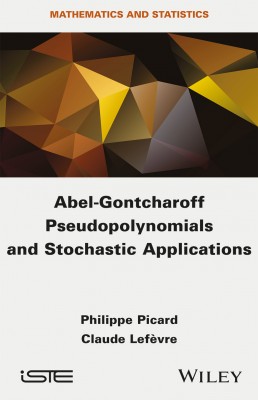
This book proposes a new mathematical methodology for addressing first passage problems, particularly in various classical stochastic models of applied probability. This approach is based on the so-called Abel-Gontcharoff (A-G) pseudopolynomials and the associated A-G expansions, which have been introduced and studied by the authors in recent years. These A-G expansions generalize the well-known Abel expansion, which allows us to extend the standard Taylor formula.
Abel-Gontcharoff Pseudopolynomials and Stochastic Applications starts by presenting an in-depth presentation of the general theory, and then moves onto stochastic applications of this theory, especially in biomathematics. Univariate and multivariate versions of the A-G pseudopolynomials, as well as extensions with randomized parameters, are discussed and illustrated for modeling, notably by highlighting families of martingales and using stopping time theorems. This book concludes by paving the way to a nonhomogeneous theory for first crossing problems.
1. Historical Abel-Gontcharoff Polynomials.
2. Abel-Gontcharoff Pseudopolynomials.
3. General Theory and Explicit Results.
4. Further Results and Properties.
5. Multi-index A–G Pseudopolynomials.
6. Randomizing A-G Pseudopolynomials.
7. First Meeting Level with a Lower Boundary.
8. Less Standard First Meeting Models.
9. Martingales and A–G Pseudopolynomials.
10. Towards a Non-homogeneous Theory.
Philippe Picard is a mathematician and probabilist, and was Professor at the Université de Lyon, France (retired in 2000), where he was responsible for the training of actuaries. His research focuses on mathematical tools in genetics, epidemics and risk theory, such as martingales and polynomials.
Claude Lefèvre is a probabilist and statistician, and is Professor Emeritus at the Université Libre de Bruxelles, Belgium. His research focuses on applied probability models, in particular those related to epidemics, reliability, queueing and actuarial science.